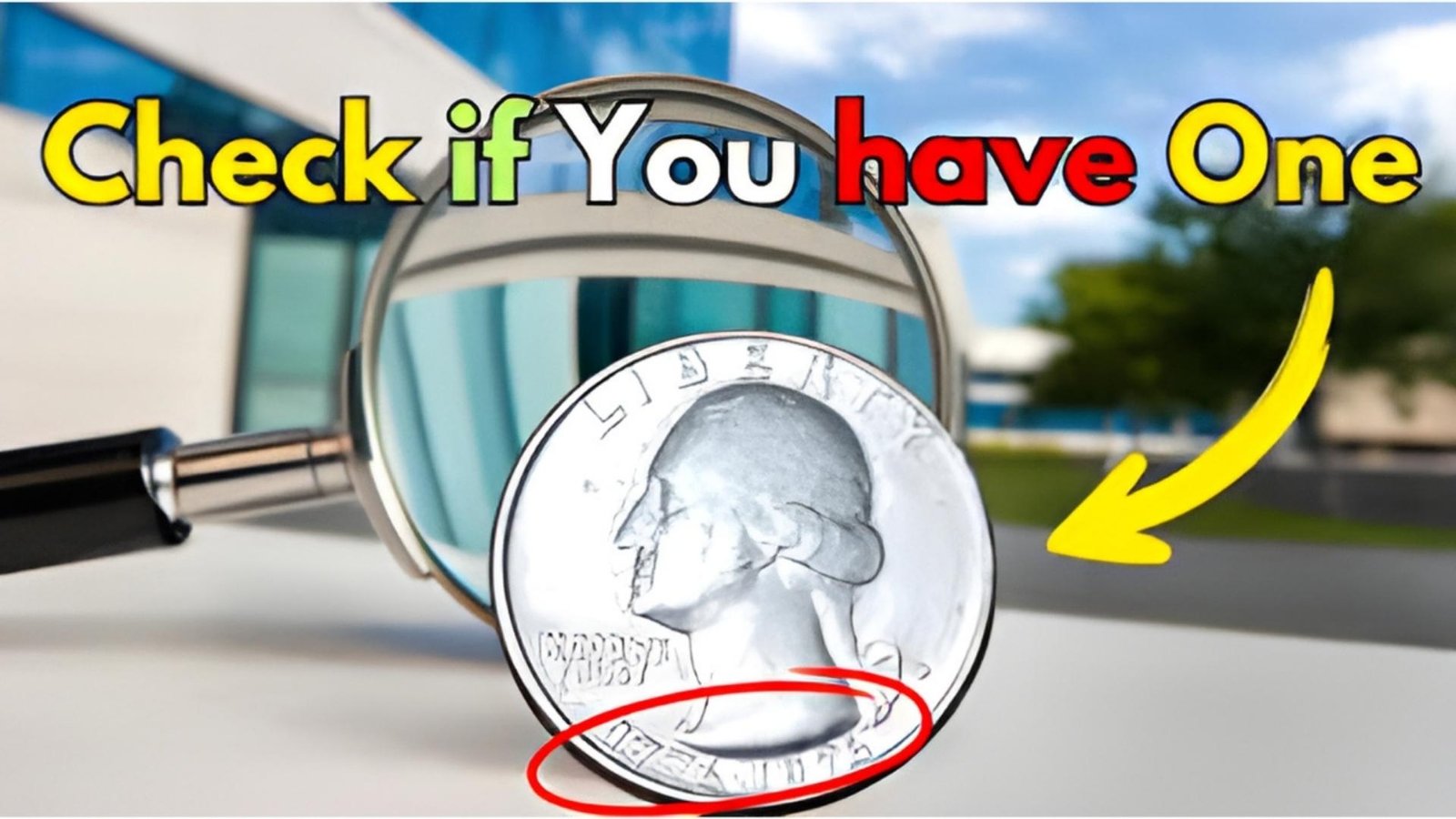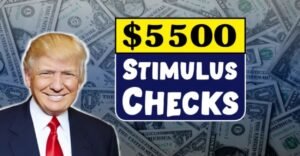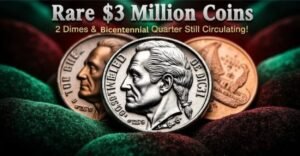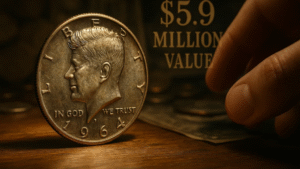Imagine casually counting change and discovering a coin worth millions of dollars. The 1976 Bicentennial quarter, minted to celebrate 200 years of American independence, holds a secret that has collectors and investors on high alert. If you own one, it might be hiding a life-changing value.
What Is the Rare Bicentennial Quarter?
The Bicentennial quarter was issued in 1975–1976 with a special dual date “1776–1976” and a unique reverse design featuring a Colonial drummer. While millions were minted, a few extremely rare variations contain die errors or limited special proofs that dramatically increase their value.
History and Origins of the Coin
To honor the United States’ 200th anniversary, the US Mint released special sets including quarters, half dollars, and dollars. The Bicentennial quarter was struck in massive numbers, yet some coins accidentally received Philadelphia or Denver mint errors, making them extremely rare today.
Why This Quarter Is Valuable Today
Collectors value coins for rarity, mint errors, silver content, and condition. Certain Bicentennial quarters — particularly silver-clad proofs or error coins — have sold at auctions for up to $2 million. Their combination of historical significance and scarcity drives astronomical demand.
How to Spot a Valuable Bicentennial Quarter
Look for the following signs: double dies, off-center strikes, missing details, or proof versions. Silver content (found in special collector sets) can also boost value. High-grade coins, especially uncirculated MS65 or higher, command the most attention from collectors.
Notable Facts and Records
- Most Bicentennial quarters are common and worth face value.
- A few proof silver Bicentennial quarters in pristine condition have sold for over $1.5–$2 million.
- Off-center and double-die errors are extremely rare but highly prized.
Top Bicentennial Quarter Varieties
| Coin Type | Key Feature | Estimated Value |
|---|---|---|
| Silver Proof Quarter | 40% silver, MS65+ | $500,000 – $2,000,000 |
| Double Die Obverse Quarter | Misaligned printing | $50,000 – $200,000 |
| Off-Center Strike Quarter | Misaligned die strike | $30,000 – $150,000 |
| Philadelphia Mint Error | Missing or faint details | $20,000 – $100,000 |
| Denver Mint Error | Mis-struck coin | $10,000 – $75,000 |
Collector Tips and Expert Advice
- Check mint marks and details carefully; errors are subtle but valuable.
- Keep coins in protective holders to preserve condition.
- Consider professional grading through NGC or PCGS to authenticate rarity and boost market value.
- Compare coins against reference guides; specialized numismatic books list known error types and sales records.
FAQs About the Rare Bicentennial Quarter
Q: Can I really find one in circulation?
A: Extremely unlikely, but possible. Most valuable coins come from collector sets.
Q: How do I verify a coin’s authenticity?
A: Get professional grading from PCGS or NGC. Provenance and certification ensure trust.
Q: Are all Bicentennial quarters valuable?
A: No. Common circulated quarters are usually worth face value; only rare errors or proofs are valuable.
Quick Comparison of Value Factors
| Feature | Common Coin Value | Rare Error/Proof Value |
|---|---|---|
| Circulated Quarter | $0.25 | $1,000+ |
| Silver Proof Coin | $10–$50 | $500,000–$2,000,000 |
| Off-Center / Double Die | $100–$500 | $30,000–$200,000 |
| Mint Mark Error | $50–$200 | $10,000–$100,000 |
Conclusion: Your Pocket Could Hide a Fortune
The Bicentennial quarter is more than just a commemorative coin — it’s a potential treasure. While most are common, rare silver proofs and mint errors can fetch millions. Next time you count your change, examine your quarters closely; you might be holding a $2 million secret.




